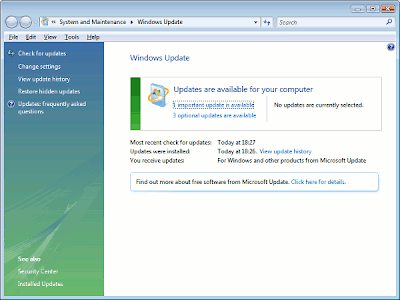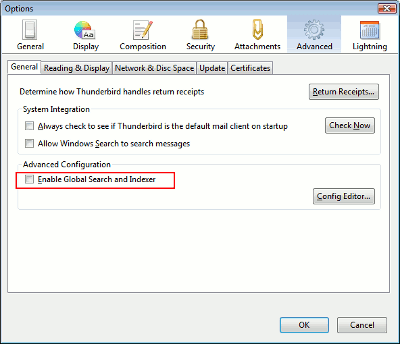
Windows users may have noticed these last few days that in Windows Update if you click to view the "important updates" that are available, the list includes
"Microsoft Browser Choice Screen Update for EEA users of Windows.." If you didn't click the "More information" link to find out what it's all about, well it's to do with Microsoft's agreement with the European Commission, after many years of toing and froing, to offer Windows consumers a choice of browsers (even if Microsoft's Internet Explorer is their default web browser) - see this Microsoft blog post for the history.
Apparently 77% of Britons don't know about it, though hopefully now the BBC have covered the story that percentage will have reduced!
Interestingly, the browser choice screen update is UNticked by default, so a user has to actively choose to tick the checkbox before it's downloaded.

According to Microsoft:
"This application creates a shortcut on your desktop. This shortcut lets you visit a Web page in which you can select which Web browser you want to install. Additionally, the first time that you log on to the computer after you install the application, Windows Internet Explorer starts automatically and displays the Browser Choice Web page.
Notes
If your computer is running Windows 7, the Browser Choice application removes Internet Explorer from a pinned location on the Start menu and in the taskbar.
If you do not set Internet Explorer as your default Web browser, the Browser Choice application does not make any changes to your computer."
Which browser?
If you want to choose a new browser, which one will you go for?
As regular readers of ACE know, in fact I use all the main Windows-compatible browsers; there's absolutely no reason why you can't have them all, apart from disk space or memory, and these days most computers are fine for that.
Firefox. I think Firefox with NoScript is probably the most secure, and the most flexible and powerful given that you can get loads of third party extensions (TabMixPlus is the other essential extension, in my view, plus Greasemonkey for my Blogger customisations). I use that e.g. if I'm not sure about a site I'm visiting. I have a master password and use it for convenience with lots of sites requiring login (with cookies saved for sites I regularly log in to, but the other cookies deleted on closing the browser). Not banking sites, though.
Internet Explorer. I use IE for online banking sites, because most banking sites will work with it. Similarly for some other sites, when I'm ordering online. Also, if I want more privacy while browsing, while I'm logged in to Google on Chrome I'll browse in IE (or indeed Firefox or Opera) so that Google can't track which sites I visit in the other browsers - as long as I'm not logged in to Google on those browsers too, of course.
Opera. My absolute favourite for speed, lightning quick, so it's good for research - I can have loads of tabs open easily, saving them in a single session for a single topic. But not all sites will support it, especially login sites, and I don't think the built-in cookie control is fine-grained enough. And Google Desktop Search, which I use mainly to keep track of sites I've been viewing, doesn't index sites visited via Opera (or for that matter Chrome, oddly enough!)
Google Chrome. Quite fast, but not as fast as Opera. It's good that extensions are now possible in Chrome and some Greasemonkey scripts work in Chrome, but there are 2 big disadvantages. The tab switching puts lots of people off - if you try to Ctrl-Tab to switch tabs, it goes to the one on the left, not the most recently used (MRU) tab, which to me is critical from a workflow viewpoint. Also, if you have lots of tabs open, as I like to, and you switch to a different tab, it takes quite a while for the tab's contents to display (no such problem with Opera). I'm convinced that Google have been heavily advertising Chrome in the EEA these last couple of months, e.g. London Underground Tube posters, in order to make the Chrome logo familiar to consumers so they'll be more likely to select it in the choice screen.
How to turn off the update item
If like me you've already got the browsers you want and don't want that browser choice Windows Update item to keep cropping up nagging you daily, here's a tip: the easiest solution is to get rid of it by right clicking on the item, then choosing "Hide update" and clicking "OK":










